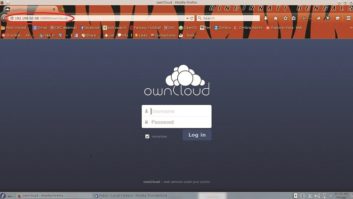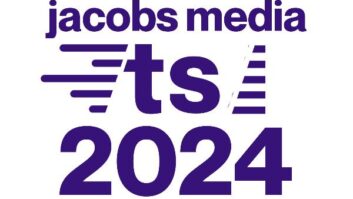Call it what you will, but several years ago when the venerable Stephen Poole, chief engineer here in the Crawford Broadcasting Birmingham cluster, introduced me to open source software, he created a monster.
My curiosity regarding open source software solutions is insatiable. To his dismay, I rarely stick with one Linux distribution and learn it inside and out; I am always toying with the next piece of innovative software.
This is how I found LTSP (the Linux Terminal Server Project), which I wrote about in the July 16, 2008 Radio World and which has ended up saving the company a small fortune in Birmingham by prolonging the lives of older office computers and re-purposing one of our old Nexgen HP file servers.

The main configuration screen for FreeNAS Admittedly, the version I wrote about took some real computer knowledge to put into place, but later upgrades of the LTSP software (k12ltsp.org) make the setup a more plug-and-play experience.
With that success beginning to wane, I was primed to find another purpose for that file server’s counterpart — another Nexgen HP file server that had been used at our studio.
BSD-based
We had a local FTP server here in Birmingham running SUSE Linux for use by our production staff and creative writers and by engineering to reference product manuals that we have either downloaded or acquired from manufacturers.
We were considering upgrading the FTP server’s OS from SUSE 9.3 to OpenSUSE 11.1. At about that time, I had become fascinated by a computer product called a Pogoplug. It is basically a little networked computer the size of a “wall-wart” type power supply that you plug to a wall outlet. You then attach a USB thumb drive or hard drive and have instant network attached storage (NAS).
The two ideas collided when I saw FreeNAS, a BSD-based distribution that handles FTP and NAS in about a 70 MB package.
BSD is not Linux but a UNIX-like operating system used in high-traffic Web servers across the Internet and is virtually bulletproof with regard to network security.
While we hadn’t had an ounce of trouble with our current FTP server, a new OpenSUSE installation would easily have been about a 5 GB install. Pogoplug was a bargain for personal use, but not for the volume we were planning on.
FreeNAS is optimized to not only handle FTP and HTTP traffic, but can also provide MS Windows shared folders with Samba/CIFS for our employees here in Birmingham.
After a pretty basic installation process, you are left with the Web GUI shown in the illustration.
This HP file server was loaded with a dozen 36 GB SCSI drives, which FreeNAS set up in a software RAID and we were off and running.
After some simple user and group setup, we backed up our FTP server. We also house a nightly file backup from our Denver cluster in Birmingham. It was backed up to our FreeNAS server too, a double backup.
FreeNAS works fine with an old Pentium III (933 MHz), showing only 1 percent CPU usage and 20 percent of the 1 GB total of RAM. I’m not exaggerating, the thing screams. We are about to put it online full time as our complete replacement for our FTP server, but it has ended up giving us much more. Amanda Alexander at our company’s Denver cluster has had some issues with one of their file servers. She has packaged it up and sent it to us and we are planning on putting FreeNAS on it.
Each of us probably has a storage room filled with machines that have lost a step in speed or need a $50 hard drive. The echoing sentiment among these pages and elsewhere is to extend life, troubleshoot, fix and reuse. We need to always be searching for how we might repurpose a computer or server so that we can get the maximum benefit from it.
FreeNAS has helped us to accomplish this. It is elegant in function and a perfect option for us to continue to give even more data services to everybody here in Birmingham even while our budgets have been tightened.
Todd Dixon, CBNT, is assistant engineer for Crawford Broadcasting in Birmingham, Ala. This article appeared in slightly different form in Crawford’s Local Oscillator newsletter.
Comment on this or any article. Write to[email protected].












